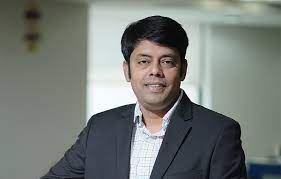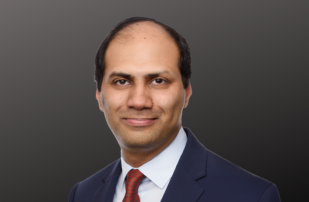Here’s the interview snippet from the interaction with Founder and President, Mr. Vasudevan Swaminathan
Saumya: Firstly, tell us about the journey of Zuci from the year it was established till now?
Vasudevan: Since its inception in 2016, the aim of Zuci Systems has been to provide software and services to help in the digital transformation of our customers’ businesses. Our goal is to use cutting-edge technical methods to develop apps with the highest standards of usability, security, scalability, and overall quality in mind, providing our users with a delightful experience.
In 2016, we began operating primarily off of our own funds in an effort to create reliable software. Our founders’ backgrounds are in software testing, so that’s where we got our start with clients, but we’ve since expanded into software development, data, and analytics. There are now over 30 customers across a variety of industries that we serve. So basically, Zuci modernises a company’s technology stack, allowing for a more unified digital experience and increased productivity.
When we started, like every other business, we faced a lot of difficulties. Numerous obstacles impeded the company’s ability to acquire the seed capital necessary for its establishment and maintenance. With our work ethic and affinity for technology, we were able to resolve each of these issues. We are delighted that Zuci has been able to establish a reputation for itself in the field of technological services throughout the years.
Saumya: How are social engineering attacks getting smarter?
Vasudevan: Cybercriminals use physiological manipulation to deceive users into committing security errors or sharing critical information. The use of artificial intelligence and machine learning to automate assaults is seen as a recent trend in social engineering attacks. This is a serious worry for businesses since it enables attackers to circumvent typical security procedures. Phishing attacks that target particular individuals inside an organisation are another trend. In order to coerce individuals into divulging important information, attackers are using increasingly customised messages and threats.
Organizations must be aware of these developments and adopt the necessary cybersecurity precautions to safeguard their data and systems. Social engineering differs from previous cyberattacks in that it depends mostly on psychological manipulation to get victims to make security errors. This is where we, as a company, play a huge role, as we have exactly what it takes to prevent such attacks with our advanced technologies.
Saumya: Throw some light on increase in cloud services and cloud security threats?
Vasudevan: A lot of individuals and organisations are adopting cloud services, but there is also a flip side to it. As the number of people using the cloud continues to expand, it is becoming more common for people to use the technology without first taking the time to learn how to properly secure it. When compared to a traditional on premises setup, the cloud introduces a number of unique challenges. For example, cloud assets may be controlled by numerous departments within an organisation (including DevOps, engineering, cloud security, and more), and not all of them are readily monitored.
Attackers are targeting every vulnerable point that gives them the opportunity to compromise the ever-increasing quantity of essential company data and apps that are housed in the cloud. This includes exploiting vulnerabilities and stealing credential information. When it comes to securing data in such environments, I feel that encryption should be used as a critical security tool. Businesses should give encryption the highest priority among the many measures they might take.
Saumya: Tell us about the potential of artificial intelligence in BFSI and Health sector?
Vasudevan: We have time and again stressed the importance and need for artificial intelligence in the BFSI and health sectors. The AI boom started during the COVID pandemic, when most businesses moved online. Successful businesses in the BFSI and health sectors have differentiated themselves with the help of digital transformation, using AI and other cutting-edge technology to increase productivity and provide seamless service to clients. In addition to facilitating faster data processing, detecting fraud, and providing superior customer service, AI paves the way for other technological advances like NLP (Natural Language Processing), robotics, and cognitive systems, all of which increase profits, enhance customer satisfaction, and introduce novel business opportunities.
Well, it is clear that there is enormous potential for AI in these two sectors, and it is actually the need of the hour with the number of hackers increasing day by day. These technologies will not just help the companies secure their data; they will act as a backbone for the company.
Saumya: How is Zuci system planning to triple the headcount to expand footprint in major metros?
Vasudevan: We are motivated to widen our horizons via the development of a solid infrastructure and a pool of highly skilled workers as a direct result of technological progress. We have planned out a strategic course of action for the coming years to expand upon our already robust infrastructure and pursue lofty goals. We share the same goals and plan to quadruple our workforce size while maintaining a 40:60 split between new and veteran hires. Beyond the state of Tamil Nadu, where our current headquarters are located in the city of Chennai, we want to eventually branch out to other metro cities as well.
We are moving towards expanding our business in a better way and changing the lives of our customers. With high demand in the metro areas for the use of automation, AI, and cloud computing, we are sure to make the most of the increasing demand. In the next several years, we anticipate the widespread use of process automation by financial institutions.








